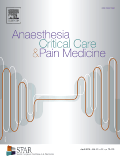
TRAUMA
Dexmedetomidine prolongs brachial plexus block and lowers opioid usage in upper extremity surgery
Anaesth Crit Care Pain Med. 2019 Jun;38(3):231-236.102 patients scheduled for open reduction and internal fixation of a radial fracture or ulnar shortening for ulnar impaction and administered a brachial plexus block were randomized to sedation with either dexmedetomidine or midazolam. The primary outcome of interest was total opioid consumption. The secondary outcome of interest was the time to first request for analgesia. Results revealed significantly favourable total opioid consumption and time to first request for analgesia in the dexmedetomidine group compared to the midazolam group.
Unlock the full ACE Report
You have access to {0} free articles per month.Click below to unlock and view this {1}
Unlock NowCritical appraisals of the latest, high-impact randomized controlled trials and systematic reviews in orthopaedics
Access to OrthoEvidence podcast content, including collaborations with the Journal of Bone and Joint Surgery, interviews with internationally recognized surgeons, and roundtable discussions on orthopaedic news and topics
Subscription to The Pulse, a twice-weekly evidence-based newsletter designed to help you make better clinical decisions
Exclusive access to original content articles, including in-house systematic reviews, and articles on health research methods and hot orthopaedic topics
Or upgrade today and gain access to all OrthoEvidence content for just $1.99 per week.
Already have an account? Log in


Subscribe to "The Pulse"
Evidence-Based Orthopaedics direct to your inbox.
{0} of {1} free articles
Become an OrthoEvidence Premium Member. Expand your perspective with high-quality evidence.
Upgrade Now












































































